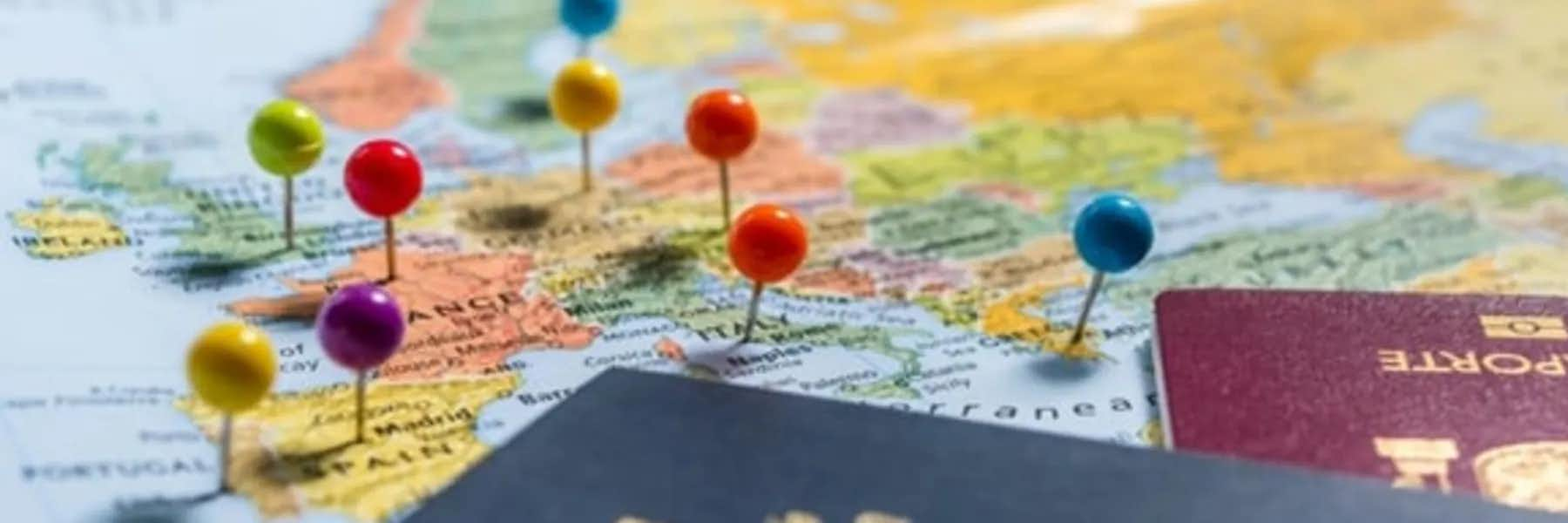I've always been the impatient type. So, when I started thinking about international travel as a young man, I wasn't prepared to wait until after I had become successful and wealthy. (Of course, there was no way to know if that would even happen.)
That’s why I jumped at my first opportunity to go abroad. I wasn't long out of high school, dithering through a couple of college semesters. I didn't feel motivated by anything except wanderlust. That’s how I found myself at the tip of Africa, 9000 miles from my birthplace, at a relatively tender age.
The rest—for me at least—is history. And it turns out that more and more young Americans are determined to follow me.
If you spend your days immersed in the second citizenship industry as I do, you quickly become aware of a distinct bias. Almost everything is written with older and richer people in mind. It's assumed that the only people interested in second passports are so-called “high net worth individuals”—people who've already made their fortune and are looking for ways to diversify and protect it.
It's true that many successful older Americans are waking up to the benefits of a second citizenship and passport. But an increasing number of younger folks are coming to the same realization.
There are many reasons for this newfound interest in global diversification on the part of America’s young adults. One is discontentment with the current state of American politics. Another is the vast amounts of debt required to get ahead. A third is the sense that quality of life is moving backward.
But the number one factor is the Internet.
Americans under 40 grew up in a digitally connected world. Their perceptions of distance and accessibility are shaped by the fact that nearly everything, everywhere, is right in front of them all the time. Unlike those of us who grew up with snail mail and National Geographic, this generation is already globally diversified—mentally speaking—thanks to the Internet.
Younger Americans are also used to making a living digitally. Even if they work in an office, most of what they do is transmitted across the Internet. They know modern work can be done from anywhere on the planet. They don't feel attached to specific places the way older generations are. That's why younger American workers are at the forefront of the push for remote work.
Then there’s the rise of freelancing and self-employment. Younger Americans have never known a job market where people sign on with a company, stay a lifetime, and retire on a defined-benefit plan. They're used to job-hopping, freelancing, and “side hustles.” Many of them have already accumulated substantial wealth via cryptocurrencies and other digital industries that didn't exist a generation ago.
Together, these factors create a natural openness to the idea of living and working abroad. And whether they intend to or not, increasing numbers of young Americans who have spent some time overseas are finding that their pathway to a second passport is easy and cheap.
How to Get a Second Passport
How to Get a Second Passport
According to Forbes, 133 million Americans could be eligible for an EU passport…
Our expert shows you 4 paths to a European passport (and the one he’s taking), plus the most common way for Americans to get a second passport in Europe.
Claim your free report and bonus video when you sign up for International Living's Daily Postcards.

By submitting your email address, you will receive a free subscription to IL Postcards and special offers from International Living and our affiliates. You can unsubscribe at any time, and we encourage you to read more about our Privacy Policy.
Consider, for example, that anybody who lives most of their time on a resident visa in Portugal, Ireland, Luxembourg, France, the Czech Republic, or Uruguay can acquire citizenship by naturalization after just five years. Brazil is four years. If you settle in Canada, Israel, Poland, Honduras, or Ecuador, it's only three years. And if you have lived for at least two years in Puerto Rico, you can acquire Spanish citizenship after only two years of residence.
Most of those countries offer some form of “digital nomad” visa. So do many other countries where the pathway to a passport is longer. At last count, 54 countries allow digital nomads to get a foot in the door to potential citizenship.
Using this pathway to a second passport turns the conventional process on its head. Instead of toiling away for most of one's lifetime to accumulate the resources needed to buy one, younger Americans can simply ply their trades abroad, bide their time, and eventually acquire citizenship as their lives progress.
If you're already of “a certain age,” citizenship by descent or investment Is a perfectly viable option.
But if you're still on the upward part of life’s curve, acquiring a second passport could be as easy as applying for a visa, booking a plane ticket, and settling into a life abroad!

Ted Baumann is International Living’s Chief Global Diversification Expert. He's traveled to nearly 90 countries and is a dual citizen of the United States and South Africa. Ted has been published in international research journals, as well as in media outlets such as Barrons, Forbes, and Cheddar. Learn more about Ted Baumann here.
Related Articles
Second Passports Aren’t Just For The Rich
Portugal Ends Golden Visa Program: What It Means For You
How to Get a Second Passport
How to Get a Second Passport
According to Forbes, 133 million Americans could be eligible for an EU passport…
Our expert shows you 4 paths to a European passport (and the one he’s taking), plus the most common way for Americans to get a second passport in Europe.
Claim your free report and bonus video when you sign up for International Living's Daily Postcards.

By submitting your email address, you will receive a free subscription to IL Postcards and special offers from International Living and our affiliates. You can unsubscribe at any time, and we encourage you to read more about our Privacy Policy.
